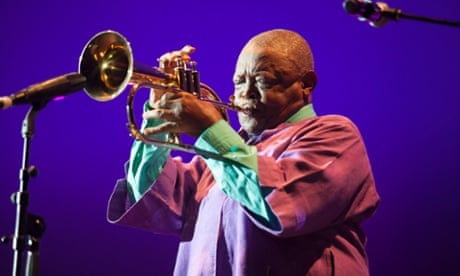It is said that 11 of the world's 20 fastest growing economies are in Africa, but when you talk about the economy, who are you talking about? The rich will benefit but the poor will always remain poor. In China, the economy is booming, but the poverty rate there is appalling; the US economy is the biggest in the world, but poverty there is appalling, too. So when you talk to me about the economy, in my mind that translates as "the establishment". The ones who run the economy, the ones who own it, are the ones who benefit from it.
In my view, Africa's real problems are cultural. In 20 years from now, when people ask my grandchildren who they are, they'll say "it is rumoured that we used to be Africans - long ago". I'm very interested in heritage restoration, and I'm working with a group of people to create a number of academies and performance spaces to encourage native arts and crafts and to explore African history.
I've got to where am in life not because of something I brought to the world but through something I found – the wealth of African culture.
Africa was not only conquered, but in conquest, through the imposition of new religions and the misunderstanding of the aims of education, and later on through advertising, Africans were manipulated into thinking that their own heritage is backward: primitive, pagan, heathen, barbaric. We need a renaissance to celebrate the wealth of diversity that really exists. Now, a renaissance is very expensive, but you don't have to force a thing on people who already own it, you just have to make the space for it to show it off - you let it grow from there. If there's going to be cultural advancement, it's going to have to come from the people themselves, but they have to be helped.
It's obvious that the rest of the world loves high African culture - African culture, period. Just look at a festival like WOMADelaide. But when people come to Africa they can't find it that easily because the African establishment has no interest in celebrating it. Governments in Africa - most governments, in fact - are allergic to this because they don't want to be upstaged. And it's to the benefit of international industry that the people of Africa remain an underclass - so they won't take ownership of the raw materials themselves. But if Africans recapture their culture they will naturally gravitate towards recapturing the continent. If they know more of who they are, they might not be willing to be so subservient.
It's not just Africa's problem; most of the world now has disappeared into laptops and iPhones and iPads. People think think that when they have these gadgets they are advancing.
Technology keeps changing the world, but music doesn't change, it's only 12 notes and six chords and it'll always be that. It's how they're juggled that makes great music and great musicians study that, whether it's Palestrina or Bach or Fela [Kuti]. But if you're into the dark glasses and chicks with their asses in the air and in your face … I don't know how much of it is music.
People talk to me about the rise of hip hop in Africa, too, but nothing that mechanical will last. The people look alike, and they're wearing the same outfits, and they're singing variations or rapping variations of the same thing. And yet the Hawaiians and the Indians sing variations of the same scales, but in there are beautiful songs, beautiful melodies. Anything that comes organically from people, musically, is what will last for ever. But what depends on a machine will always depend upon a machine. Until a bigger machine comes.
Hugh Masekela starrred at WOMADelaide, which took place over the central weekend of the Adelaide Festival. He was talking to Caspar Llewellyn Smith. The Guardian is the media partner of Womad at Charlton Park in the UK in July.

Comments (…)
Sign in or create your Guardian account to join the discussion